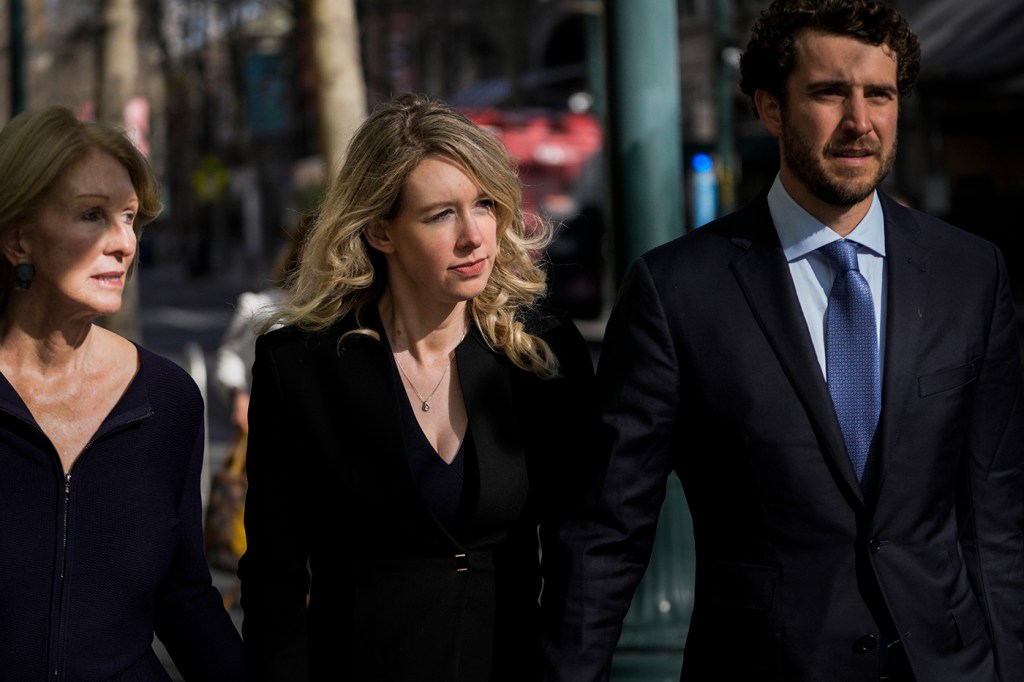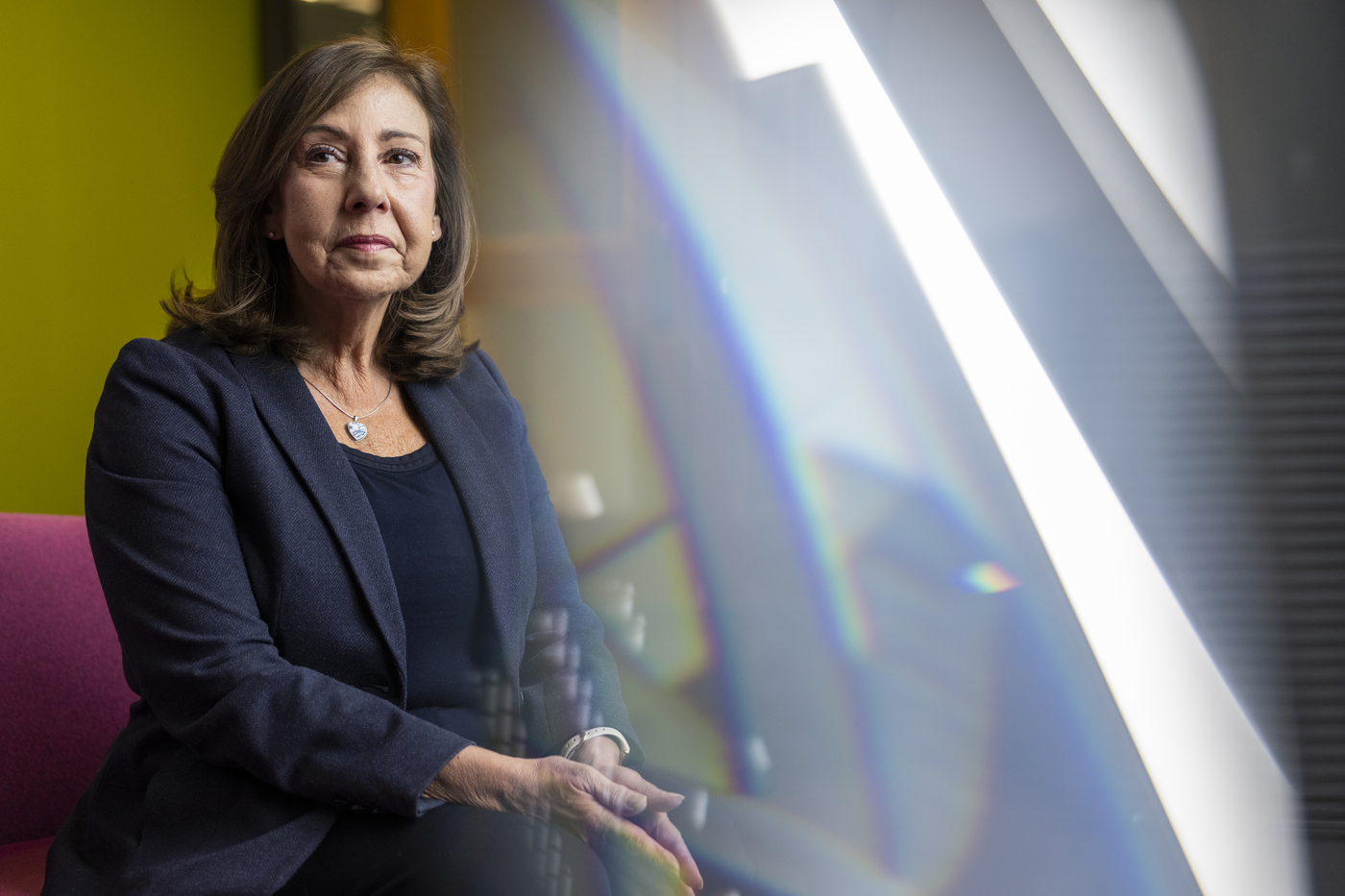Elizabeth Holmes’ shorter sentence won’t negate the impact of her incarceration on her children

Elizabeth Holmes, a Silicon Valley “genius” turned defrauder and incarcerated in a Texas prison, could be reunited with her children sooner than the expected date from her sentencing.
The Federal Bureau of Prisons records show she could be released nearly two years earlier—Dec. 29, 2032—than the original date.
Holmes, 39, was sentenced in November 2022 to 11 years in prison for defrauding investors about medical blood-testing devices invented by her startup company, Theranos. The Federal Bureau of Prisons recently updated her release date. The bureau did not comment further on the update, citing privacy reasons, but noted inmates can earn good conduct time that is projected in their release date, according to reports.
While Holmes was investigated and tried in the court of law, she married William “Billy” Evans in 2019 and gave birth to their first child, a boy, in July 2021. Her incarceration was delayed after the sentencing, as Holmes was pregnant with her second child. The child, a girl, was born in February 2023.

Holmes reported to a minimum security Federal Prison Camp Bryan to serve her sentence on May 30 in Bryan, Texas, when her daughter was just about 3 months old and her son was several weeks shy of his second birthday.
Despite the new release date, Holmes’ two young children are at a high risk of being affected by her absence from their lives, says Laurie Kramer, professor of applied psychology at Northeastern.
“I worry about these children—and all the children of incarcerated parents,” she says.
Children who grow up while one of the parents is incarcerated, she says, can potentially experience long-term damaging impacts.
What separates Holmes from a lot of other incarcerated mothers in the U.S. though is that her husband, whose family owns Evans hotels in California, most likely has financial assets and family support that will make a huge difference, Kramer says. They are able to hire people to help with child care, cooking or other tasks that in other families are done by the same caregiver.
“In the vast majority of families in which a parent is incarcerated, whether it is the mother or the father, the family usually doesn’t have comparable financial resources or support,” Kramer says.
Women in the U.S. prisons make up about 30% of all women incarcerated around the world, she says. About 60% of women in prisons as well as 80% of women in the U.S. jails are mothers and most of them were primary caretakers.
On average, each parent incarcerated in state or federal prisons, similarly to Holmes, has two minor children.
Kramer says that not having access to one’s mother (or father) is very stressful and can be traumatic for the child. It can result in them feeling sad and depressed, angry at being abandoned, and perhaps, hopeless.
Prolonged separation disrupts the bond, or attachment, between the child and the mother. Because secure attachments are the basis by which children learn to trust others and form satisfying relationships with others, a disruption in the mother-child attachment relationship can have long-term negative effects.
“Young children, in particular, don’t really have a good way to understand what’s happening, they just feel this intense loss,” she says. “And that can be both psychologically and even physiologically stressful for kids.”
When children experience losses, such as access to a parent, they may have more troubles at school academically, behaviorally, and psychologically, Kramer says. Repeated incarcerations of a parent can be even more psychologically damaging to children.
“There’s growing research that the more adverse experiences children have growing up, the more psychological, social and personal difficulties they may have later in life,” Kramer says.
They might end up having more contact with law enforcement themselves as adults, engage in substance use or other risky behavior.
Families who are experiencing incarceration are more likely to experience things like poverty, financial instability, health concerns, mental health concerns, homelessness or housing insecurity.
Although the general understanding is that younger children are affected more by the separation from a parent, Kramer says, the effects on adolescents are significant as well.
“Adolescents are at a very vulnerable point in their development. When they feel the absence of a parent they loved and trusted, and lack a full understanding of what’s gone on and why, they can feel overwhelmed and even lost,” she says. This can be particularly true when no other trusted adult steps forward to provide care and guidance.
It can be a turning point in their lives, which could potentially lead them to engaging in more riskier behaviors themselves.
When a parent has to go to prison, the best-case scenario is that the other parent or other adult family members like a grandparent, aunt or uncle can step up and take care of a child. Otherwise, the child may be transferred to foster care for the period of incarceration of the parent or longer.
In any case, children do not have control over how long they can see their mother in prison or how often they can visit her. Visits are often sporadic and oftentimes children can’t even touch their parent during a visitation.
There’s growing research research that the more adverse experiences children have growing up, the more psychological, social and personal difficulties they may have later in life.
Laurie Kramer, professor of applied psychology at Northeastern University
It is vital for children to know that their mother still cares, Kramer says. Visits, phone calls, letter writing—all count.
“Kids are resilient,” Kramer says. “Hopefully, the kids can feel loved and supported even when access to their parent is limited.”
If their caregivers are supportive people who provide stable care, children can certainly thrive. Most importantly, they should be able to ask questions, and adults need to answer them in a straightforward way, using neutral terms.
“It’s not useful in the long run to pretend that that parent is just away on a vacation or something like that,” Kramer says.
Children can also benefit from therapy in such situations.
There’s growing research that the more adverse experiences children have growing up, the more psychological, social and personal difficulties they may have later in life.
When the parent is released from prison, Kramer says, there is usually a level of excitement for each other on both sides. But there will be a lot of apprehension as well.
Children might experience anger, guilt, and feelings of being left behind and alienation. At the same time, they may also have found ways to become more independent and self-reliant, which should be celebrated. Both sets of feelings should be acknowledged during this reunion.
As families come back together, it’s important for them to be able to have some ways to talk to each other about their experiences, Kramer says. What it was like to be separated, what it’s like to come back together, their hopes for the relationship moving forward.
“This will be a process by which the family will transition to a new way of being together and hopefully develop new and better ways of interacting with one another,” Kramer says. “As they come back together, there are unlimited opportunities for them to make their family even stronger than they were before.”
Alena Kuzub is a Northeastern Global News reporter. Email her at a.kuzub@northeastern.edu. Follow her on Twitter @AlenaKuzub.






